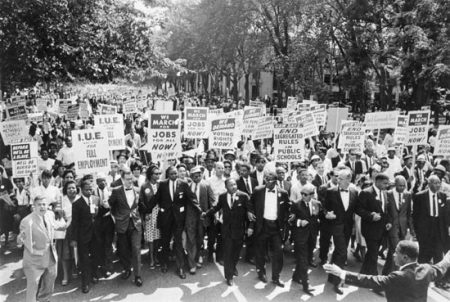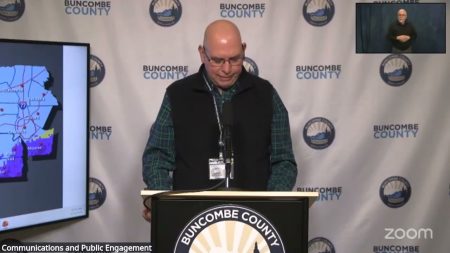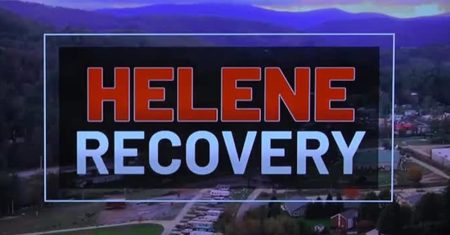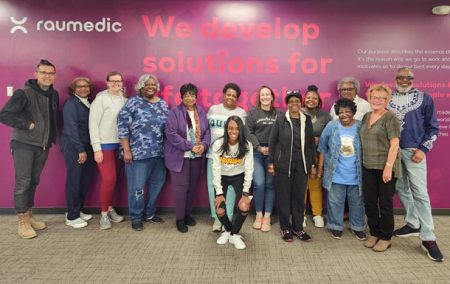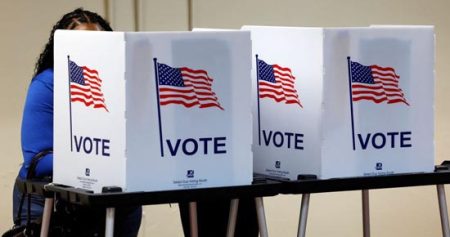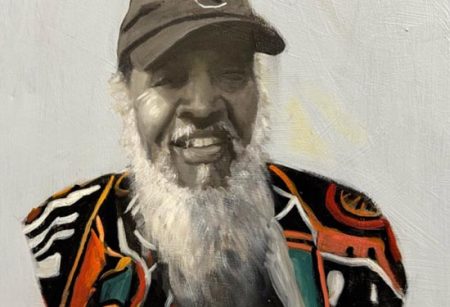Speaking Out on Economic Empowerment for African Americans
 by Cathy Holt
by Cathy Holt
Al Whitesides is a highly successful businessman, having joined Mountain First Bank after a 34-year career with First Union National Bank (and its successor Wachovia). Like many traditional executives, he started in a training program and worked his way up. He is a strong believer in the importance of education.
“There is a big need in this community to start new businesses. You’ve got to be prepared; education is the key. When I see so many African Americans dropping out of Asheville High, it’s discouraging. In a global society, you must be educated,” says Whitesides. “I’m a product of the fifties & sixties, arrested in the civil rights movement many times. Most of the kids in ASCORE went on to college; we were all good students. While I was sitting in at lunch counters in Atlanta and Durham, and getting arrested, I’d be there with my books, studying for exams. When I graduated, I was president of the student government. We were determined to see the changes made.”
His
parents and grandparents impressed on him that the only equalizer was
education. “My grandfather used to say, ‘You can fight to get in the
door, but if you’re not prepared to stay in the room, what good was the
fight?’ We live in a global economy, we’re competing with the world.
When it comes to the sciences, math, other countries are ahead of us.
I’ve been on the school board, and wonder what we’re doing wrong. The
schools haven’t kept up with the times. We are in the technological
age, yet some high schools aren’t even wired for the Internet.”
Whitesides
believes that youth need good role models, including African American
teachers and community leaders. “Those of us who were active in the
Civil Rights movement are going to have to finish what we started, or
we could lose another generation. This is a time when we can make a big
difference to the young people!”
Looking at
African American businesses in Asheville, he says: “We made a mistake
in the ’60’s. We were working to get into the hotels, restaurants, but
we did not upgrade our own businesses. As a result areas like the
Block, all over the country, are dead. It will be revitalized, but it
will never be what it was. We didn’t take the steps we should have to
preserve the Block.” Whitesides identifies some successful local
African Americans like physician John Holt, attorney Eugene Ellison,
businessman, Dr. Ron Caldwell, Dr. Albert Anderson, and bankers Annette
Coleman and Ray Spells as achievers whose success should be emulated.
He notes that both Ray & Allen Funeral Service and Hart Funeral
Service are second-generation businesses.
“To succeed,
you’ve got to have the work ethic, to save and to invest, whether in
stocks or real estate. What good is it to be able to live anywhere in
Asheville, if you can’t afford to buy a house? Housing is a huge issue.
You need good credit. Look at the total picture. If you don’t have your
act together personally, don’t even think about starting a business,”
Whitesides advises.
Elaine Robinson
describes herself as a provider of business solutions, helping
individuals and groups with structures and strategies. She is a coach,
consultant, and group facilitator. Although Robinson has been in
Asheville for three years now, she has found it difficult to get
established here. “I’ve found that it’s a fairly closed community;
people are friendly, but they have established relationships. My
perception is that, surprisingly, there are still White people in this
city that are not accustomed to doing business with professional
African Americans in business. They see no reason to engage people who
are not like them.”
Robinson
believes that the future for African Americans here would be best in
basic products and services which lots of people need, like a hair
salon, food store, cleaning business, lawn care, sign making, printing.
“Be clear there’s a need for your services. And, it’s important to
build good strategic alliances.”
Governments are
required to work with minority vendors, such as in contracting for a
painter or cleaning services. Robinson likes the idea of a central
directory where people can find a minority vendor, making it easier for
them to hire African American businesses.
Minority
Economic Development Week took place Sept. 18-22. “It’s the only event
of the year where you get minority men and women businesspeople
together,” according to Robinson. Events included training in
marketing, numerous networking opportunities, and recognition of
successful minority entrepreneurs. Robinson was delighted that Alvin
Kimball, one of her clients, received an award. “As a coach I’m an
encourager,” she says. “I love to walk alongside people and support
them. I especially enjoy working with black men, telling them ‘You can
do it!’ and they really respond to it. They’ve been my client base,
through Mountain Microenterprise Fund (MMF). My calling is to help
people to midwife their visions and dreams. That’s my passion.”
Robinson coaches
new entrepreneurs through MMF. “They are a wonderful organization. They
really understand the importance of being there for women, Latinos, and
African Americans.” However, more Latinos than African Americans have
taken advantage of their services; they seem to be more fired up, more
determined to succeed. “There’s a mindset in the African American
community that ‘I can’t do it,’ ‘I won’t be accepted,’ that goes very
deep,” Robinson mused.
She believes
that “to become more empowered economically, it’s necessary to partner.
We need to keep our eyes on the HUB project, which will be a huge
economic development force emphasizing technology, rejuvenation, and
creativity. People will make it here by starting up new businesses.”



